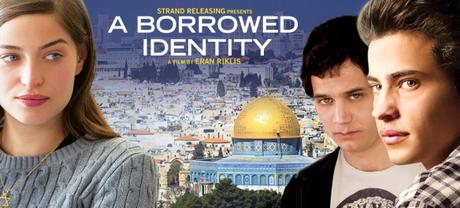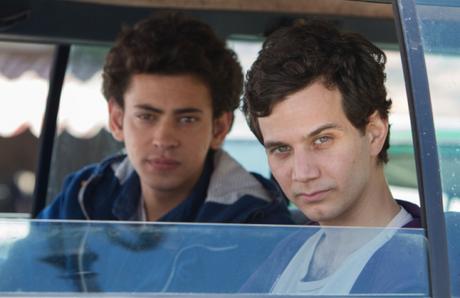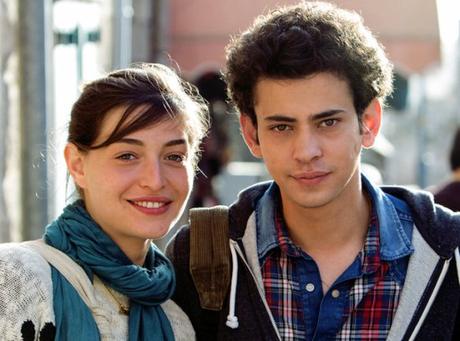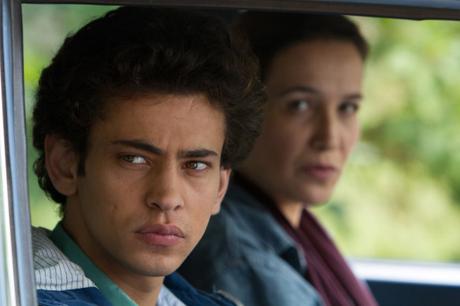Based on the autobiographical writings of Arab-Israeli writer Seyad Kashua, the film “A BORROWED IDENTITY” shows us a world in which an us-versus-them mentality trumps common humanity.It also follows in the glorious tradition of brilliant Isreali/Arabic films such as “Lemon Tree” and “The Band’s Visit“. Directed by a leading Israeli filmmaker Eran Riklis, who has made another brilliant comedy on a similar theme (“The Syrian Bride”).

The film examines the often frustrating struggles for Arabs trying to assimilate into Israeli culture, as experienced by Eyad, a bright child raised by a loving family, including a politically active father in Tira, a predominantly Arab town in Israel. Unfolding against the politically charged backdrop of Israel in the 1980s, the film is about the stress of living in Isreal with an Arab identity. 20% of the Isreali population are of Arabic ethnicity.
The tale opens in an Arab village in the 1980s when the family of young Eyad are fixated on a TV screen by the sight of Israeli jets attacking Lebanon on the TV news. Politics and war are much on everyone’s minds, but so are the bonds of family. Eyad is particularly close to his grandmother, who advises him on her wishes for her burial, an event he hopes is far in the future.
The film establishes its tone with a scene of a young Palestinian boy rising in front of his class to announce, proudly, that his father is a terrorist. Eyad doesn’t know what the word “terrorist” means. In actuality, his father, Salah (Ali Suliman), works as a fruit picker. Despite Salah’s smarts and an impressive education, menial labor is the only job that the boy’s father can get, after the Israeli government catches him plotting with other Palestinian political activists.
Like his father, Eyad is naturally intelligent. He’s even admitted into a prestigious — and predominantly Jewish — boarding school in Jerusalem. Calling it the best school in Israel, Eyad’s father, insists that the boy attends, even though it’s expensive and far from their home. Assimilation is not easy. His clothes aren’t right. No one can remember his foreign-sounding name. And he has trouble pronouncing Hebrew. And a group of students takes delight in bullying him. Eyad is aso tormented in subtle and unsubtle ways. Israeli soldiers arbitrarily demand his identification on the street; he is subject to anti-Muslim songs at a bus stop; when his bond with Naomi is discovered, her parents threaten to pull her out of school.
There are some brighter moments too. As he desperately tries to fit in with his Jewish schoolmates and within Israeli society, Eyad develops a friendship with another outsider, Yonatan (Michael Moshonov) a boy suffering from muscular dystrophy. At first reaching out to him is an assignment and a chore, but the two soon bond over rock music. Eyad is also moved by Yonatan’s relationship with his mother, Edna, and gradually becomes part of the home Jonathan shares with his mother.


Even as Eyad flourishes at school, the stakes are rising ominously: Yonatan’s condition worsens; Naomi decides to tell her parents the truth about her relationship with Eyad; and Eyad realizes how much easier his life would be if he simply pretended to be Jewish..

He leaves school when their relationship is uncovered, and he discovers that he will have to sacrifice his identity in order to be accepted.
Faced with a choice, Eyad makes a decision that will change his life forever.
